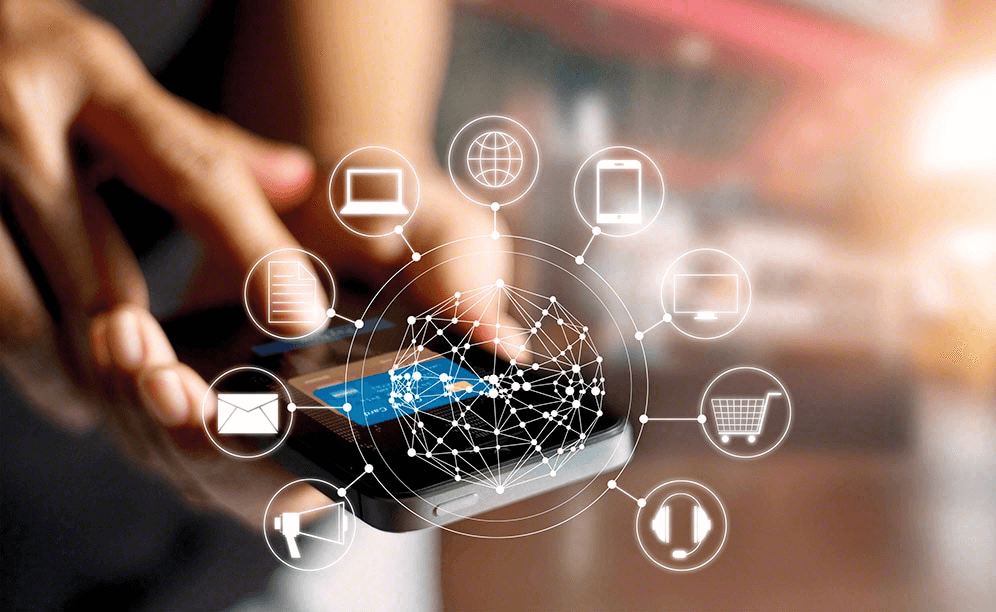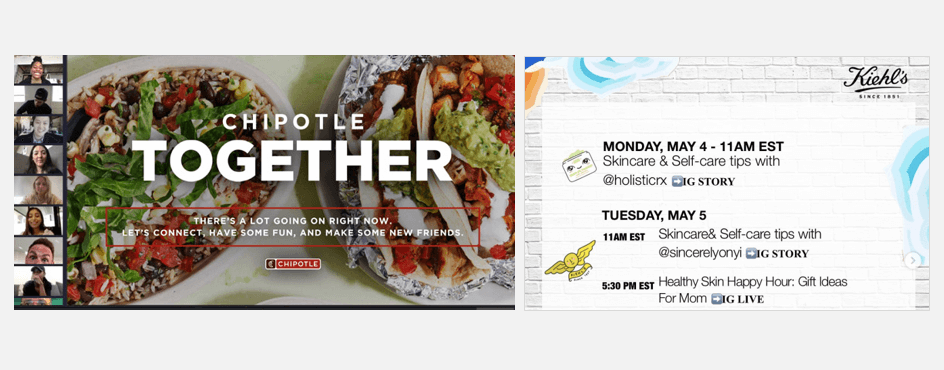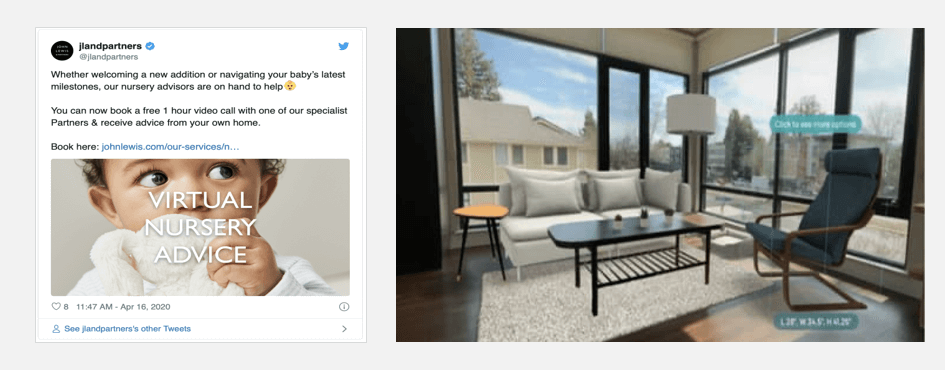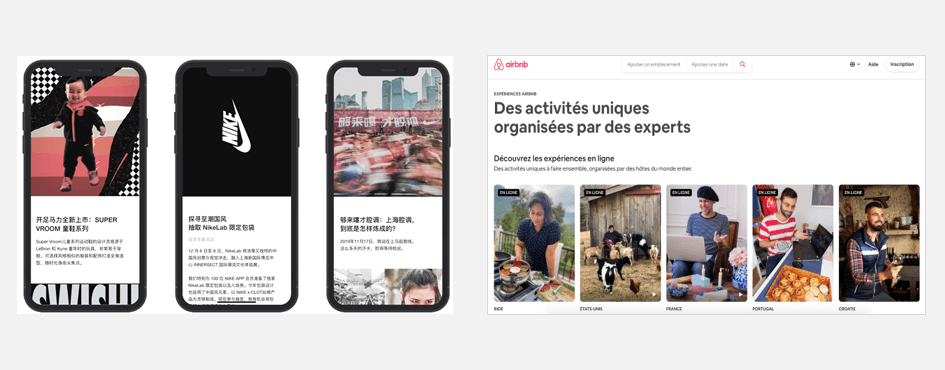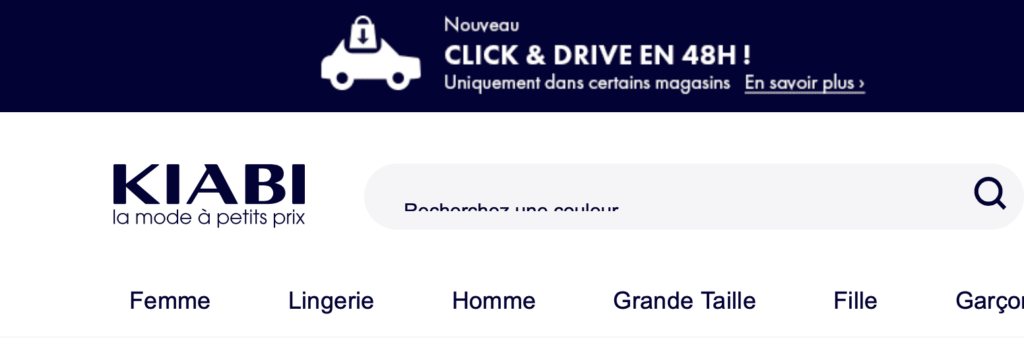Omnichannel is a major business transformation aimed at unifying distribution channels, to guarantee the best possible customer experience by abolishing the boundaries between e-commerce and traditional commerce. The customer is recognized as a unique customer on both channels, and personalized recommendations are made. Purchases can start online, continue in-store and end on social networks, all seamlessly, thanks to 360° customer information.
The budgetary, organizational and technological implications of this concept have often gone unheeded, but the unexpected upheavals brought about by COVID were not to be taken into account.
The precipitous closure of most retail chains, the challenges faced by just-in-time supermarkets in the face of consumers overstocking basic goods, and the boom in e-commerce have all led to a veritable revolution in consumer habits.
Like all Schumpeterian revolutions, the health crisis has brought clusters of innovations to light, renewing the value proposition of brick-and-mortars and e-commerce pure players, tending to break down silos and standardize channels.
Far from being a one-way phenomenon, the two sales channels feed off each other and become omnichannel. Here are just a few examples.
Retail ... more connected
After two challenging months for retailers, particularly those whose activities have been put on hold as non-essential, let's take a look at their connected initiatives to cope with the crisis.
Maintaining customer relations
The first concern of retailers was to maintain the link with their customers, whatever the cost, because "the raison d'être of a company is to create and keep a customer" (Levitt).
Chipotle, the famous Tex-Mex restaurant chain, has opened a virtual restaurant on the Zoom platform, well known to confinees the world over. In fact, since the start of confinement in mid-March, the chain has been organizing "Chipotle Together" virtual lunches, inviting a celebrity with whom 3,000 customers can interact. The initiative, which is very much in vogue, as evidenced by the proliferation of "web-apéros", helps to keep in touch with confined customers.
Another very popular initiative, especially among digital natives, is maintaining a community of customers through social networks. Cardio-dance Instagram lives with Kiehl's, make-up challenges with Kat Von D, chats with your NYX PMU beauty consultant, cosmetics brands are pulling out all the stops by staying close to their customers at a time when social content consumption is exploding.
Digitizing the way you work
Maintaining customer relations is a good first step in retaining and recruiting staff before businesses reopen. In the meantime, companies have also found new business opportunities or reinvented themselves to limit the impact of the crisis.
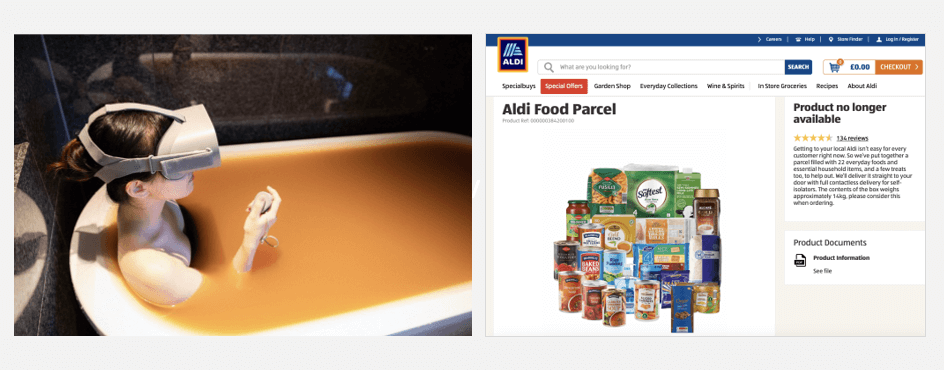
The tourism sector, one of the hardest hit by the crisis, with growth expected to fall by 30% over two quarters according to the World Travel and Tourism Council, is going digital. Examples are multiplying ... museums are opening their doors to Internet users from the comfort of their sofa, the Faroe Islands can be visited on virtual walks as if in a video game ... Experience a bath in a Japanese spa from the comfort of your own home? It's possible now that a group of spa owners have uploaded virtual reality images of their hot-spring baths to Youtube to offer the experience to shut-ins the world over.
Supermarkets are innovating too. Surfing on the boom in home delivery services and with a view to solidarity, Aldi, a hard discounter with a fairly traditional retail operation, has started selling products online for the very first time. The initiative, which originated in England, consists of a box of essential products that vulnerable or isolated customers can order via the Aldi website. The boxes cost £24.99 each and contain a mix of items, food, toilet paper, antibacterial gel.
E-commerce ... closer
E-commerce also faced challenges. At the end of April, there was a 23% jump in online food sales and a 31% increase in non-food sales compared to the beginning of March. Against this backdrop, more than ever, innovation is a key element of an effective differentiation strategy. Let's take a look at some of the initiatives born of the crisis.
Advisors in your living room
Against a backdrop of health crises, new challenges are emerging, in particular that of reassuring and advising customers who are unable to visit a boutique for advice, and who are anxious to comply with rules and barrier gestures. Accompanying your customers from a distance, in order to satisfy, convert and build loyalty... a challenge to which some brands are responding by inviting themselves into your salon.
John Lewis & Partners, a department store chain with a presence in Ireland, launched a website dedicated to "virtual services" during containment, in order to transfer in-store expertise online. The platform, called "Your Partners Through It All", allows users to book individual video appointments with experts in various fields (gardening, interior design, clothing style). How about learning to garden?
Another initiative, born of a topical question as confinement pushes home reorganization, particularly to accommodate teleworkers in need of workspace. How do you choose your furniture during confinement? Ikea offers a clever solution, based on virtual imaging. Thanks to its acquisition of the start-up Geomagical Labs, Ikea enables its users to recreate rooms in 3D, remove the furniture and replace it with virtual furniture. No need for on-site measurements. And when in doubt or in need of advice, Ikea Belgium goes one step further, offering free 30-minute video appointments to help you make up your mind.
Omnichannel: experience first
Providing customers with the best possible advice is a strategic lever for conversion. Some brands go even further, creating a genuine online sales experience that is almost as convincing as an in-store visit.
The first example is Nike, which is capitalizing on the growing trend towards wellness applications and the implicit injunction to take care of oneself while confined and not to give in to complacency, and is banking on the customer experience to survive the crisis... And it's working, with digital sales growth in China in triple digits compared with pre-crisis levels. Nike launched its digitally connected fitness app and "network of expert coaches" in China to help Chinese consumers stay active while locked in. According to its CEO, "Chinese consumers' strong engagement with our activity apps has translated into strong engagement with our Nike commerce app." In the US, the brand launched a "play inside" marketing campaign linked to its Nike Training Club fitness app, which it made free. The premium version, offering 185 workouts, normally costs around $15 a month.
In terms of experiences, ideas for activities to be enjoyed, even in confinement, are all the rage. From Veepee's homemade recipes and activities to keep the whole family busy, to "Club Med at home", the initiatives are numerous.
Airbnb puts the spotlight on online experiences, on its " Airbnb Experiences " platform, launched in 2016 to book activities to do on site. Farm visits, flavors of India in your kitchen, twerking lessons and mime classes, it's all there. A quick and effective repositioning.
Hybrid product delivery methods
To counteract the closure of physical stores, retailers are massively developing click and collect and innovating in terms of product availability. One example is the Mulliez Group (Auchan, Décathlon, Boulanger, Leroy Merlin), which has increased its click and collect rate on non-food products from 15% to over 60% during confinement. Some inspiring examples...
After a 15-day lightning project, Kiabi launched the first textile click and drive on April 24. To avoid overloading delivery services, whose lead times have lengthened considerably since the crisis, the retailer is offering a 48-hour no-contact in-store pick-up via the drive system. This initiative has been tested in the Nord region and is currently being rolled out.
Petit Bateau is also innovating, changing from the traditional "click and collect" to "call and collect", a video-conferencing shopping service. Customers call the store using their smartphone. The sales assistant then shares the new store collections live. At the end of the call, the customer can pay by phone and either pick up their order in-store, or have it delivered to their home.
Things to rememberIf, before the crisis, you were still in any doubt about the need to implement a real strategy Omnichannel, the crisis has revealed its importance, indeed its urgency. The two sales channels are playing in distinct arenas, and are not rivals but complementary elements of a corporate strategy. If e-commerce can draw inspiration from the experiential and relational practices of retail, and retail is becoming digitalized, it is necessary to think of these services or new value propositions in a common way, in order to guarantee the most fluid and pleasant customer experience possible. Once the urgency has passed, real questions of governance, data management and redefining customer expectations will arise. On these subjects, our Univers Retail experts will be delighted to share their convictions and support you in your strategic thinking and projects. |

